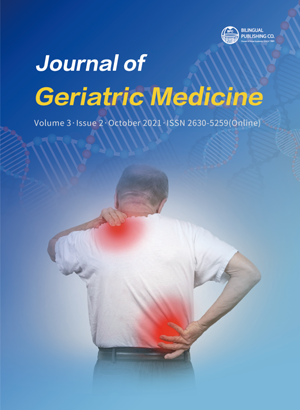 Correction & Withdrawal Policies
Correction & Withdrawal Policies
The Necessity of Community Connectedness in Iranian Older Adults during the COVID-19 Pandemic
DOI:
https://doi.org/10.30564/jgm.v3i2.3889Abstract
In last decade, COVID-19 outbreak was one of the major crises encountered the world(1). During the COVID-19 pandemic, Iranian people have been advised to stay at home and far away others. If it is essential to leave their residence, people have been urged to avoid gathering and maintain physical distance from others. Community disconnectedness for older adults was primary prevention specially for elders with comorbidities (2). For the first time, most of Iranian older adults were experiencing an unwanted and prolonged separation from others.
References
[1] Tian T, Meng F, Pan W, Zhang S, Cheung T, Ng CH, et al. Mental health burden of frontline health professionals treating imported patients with COVID-19 in China during the pandemic. Psychological medicine. 2020:1-2.
[2] Shahid Z, Kalayanamitra R, McClafferty B, Kepko D, Ramgobin D, Patel R, et al. COVID-19 and older adults: what we know. Journal of the American Geriatrics Society. 2020;68(5):926-9.
[3] Kang C, Tong J, Meng F, Feng Q, Ma H, Shi C, et al. The role of mental health services during the COVID-19 outbreak in China. Asian Journal of Psychiatry. 2020;52:102176.
[4] Wu B. Social isolation and loneliness among older adults in the context of COVID-19: a global challenge. Global health research and policy. 2020;5(1):1-3.
[5] Yu K, Wu S, Chi I. Internet use and loneliness of older adults over time: The mediating effect of social contact. The Journals of Gerontology: Series B. 2021;76(3):541-50.
[6] Whisman MA. Loneliness and the metabolic syndrome in a population-based sample of middle-aged and older adults. Health Psychology. 2010;29(5):550.
[7] Bessière K, Pressman S, Kiesler S, Kraut R. Effects of internet use on health and depression: a longitudinal study. Journal of medical Internet research. 2010;12(1):e1149




 Samira Olyani
Samira Olyani





